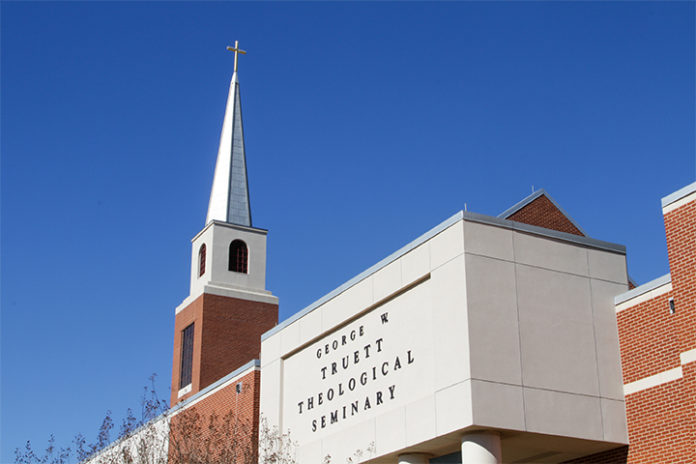
By Ana Ruiz Brictson | Staff Writer
The Board of Regents had its regular meeting on Friday to affirm the five-year framework of Illuminate and to approve renovation plans, tuition increases and new degree programs, along with other plans.
Within its strategic framework — as Baylor continues to be on track to potentially receive Carnegie R1 recognition in 2024 — the board approved Illuminate’s plans for 2022-2027.
These plans include hiring 20 new faculty members per year for the next five years, renovating residence halls — including Collins Hall in 2022-2023 and Alexander/Memorial Halls in 2023-2024, followed by Allen-Dawson and Kokernot Halls — and creating a new common area for the Honors College as well as a unified home for the college. There will also be continued investments in engineering and computer science.
Along with those goals, the Board of Regents foresees the completion of the $1.1 billion Give Light campaign. Its end will be met with the launch of the Illuminate Academic Challenge to build on the Baylor Academic Challenge which has seen 14 new faculty chairs endowed.
Aside from discussing Illuminate’s plans, the Board of Regents also approved a 3% increase in tuition for the next academic year as well as a 2-3% increase in the price of room and boarding.
“One of the things that frankly in some ways gives us the opportunity to do is to have more flexibility in how we support our students that have greater need,” President Linda Livingstone said.
Livingstone also said that in addition to the university resources regarding scholarships and merit-based aid, they have also increased the support they can provide for students with compassion funds on campus.
Mark Rountree, chair of the Board of Regents, said these financial decisions are hard to make and that it is important that they are not only made with the organization’s needs in mind but also based on the context of how they can continue to expand Baylor’s capacity to provide assistance to qualified students who have significant financial needs and constraints.
“Part of the decision that was made today was made with an eye toward, again, continuing to enhance the ability of the university to meet the needs of lower-income students as they become part of the Baylor family,” Rountree said.
Two athletic capital projects were also discussed in the meeting.
The board approved the naming of the Fudge Football Operations Center, which will house the operations center for Baylor’s football program. It also approved $6 million to begin the first phase of the construction that will be located along the Brazos River with views toward McLane Stadium. The total cost of the 105,000-square-foot facility will be an estimated $65 million.
Additionally, the board approved the $1.2 million basketball pavilion for additional design and pre-construction services. It will be announcing the final approvals, decisions on locations and total cost in early 2022. The groundbreaking is set for summer of 2022.
There will also be the construction of a Materials Laboratory space in the Baylor Research and Innovation Collaborative (BRIC) costing $1.7 million. The Mayborn Museum will additionally get a new installment to adorn the front of the building: a $1.1 million life-size sculpture of a Columbian mammoth.
The Board of Regents approved a retirement restoration for faculty and staff of Baylor’s 10.8% contribution, which will be retroactive to the beginning of the fiscal year.
The board also decided there will not be a change in tuition or fees for Baylor Law School and discussed a new affordability structure for Truett Seminary. Instead, it announced a decrease from $1,071 per credit hour to $690 per credit hour, which will be effective June 1, 2022 for Truett.
Lastly, the board approved six new degree programs including:
- Ph.D in Public Health, with concentrations in social and behavioral health and epidemiology
- Doctor of Occupational Therapy
- M.A. in Global Ethics (a joint degree with Hong Kong Baptist University)
- M.A. in Theology and Sports Studies
- M.A. in Contextual Witness and Innovation
- M.A. in Theology, Ecology and Food Justice
“It’s all part of our strategy to grow our graduate, professional and doctoral education, and so we’re excited about these new degrees and the opportunities to provide students,” Livingstone said.
Plans for the incoming class of 2026 were discussed as well, and statistics have shown an increase of 15% in applications to Baylor from last year.
Livingstone said this meeting was very significant and unified the direction of the university and the impact it will be able to have.





